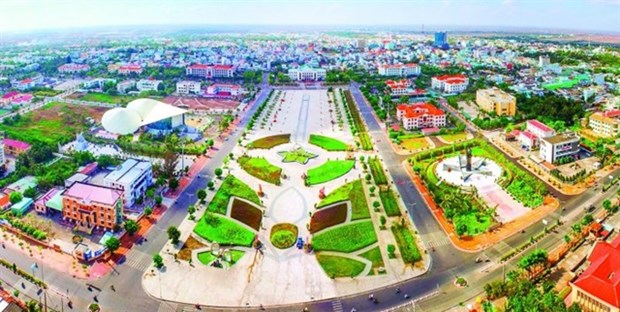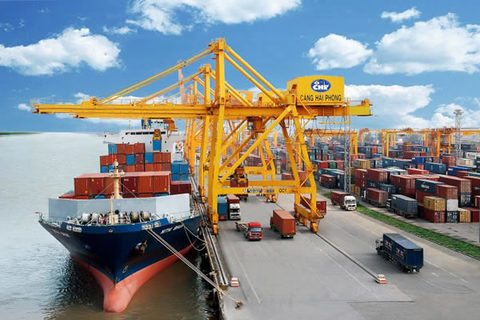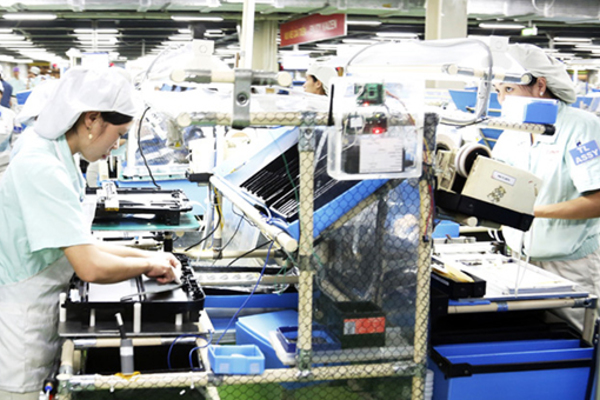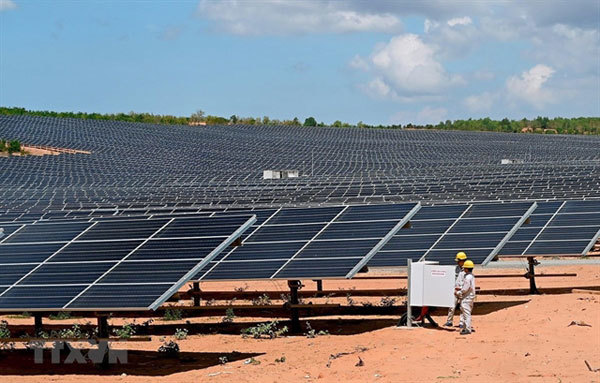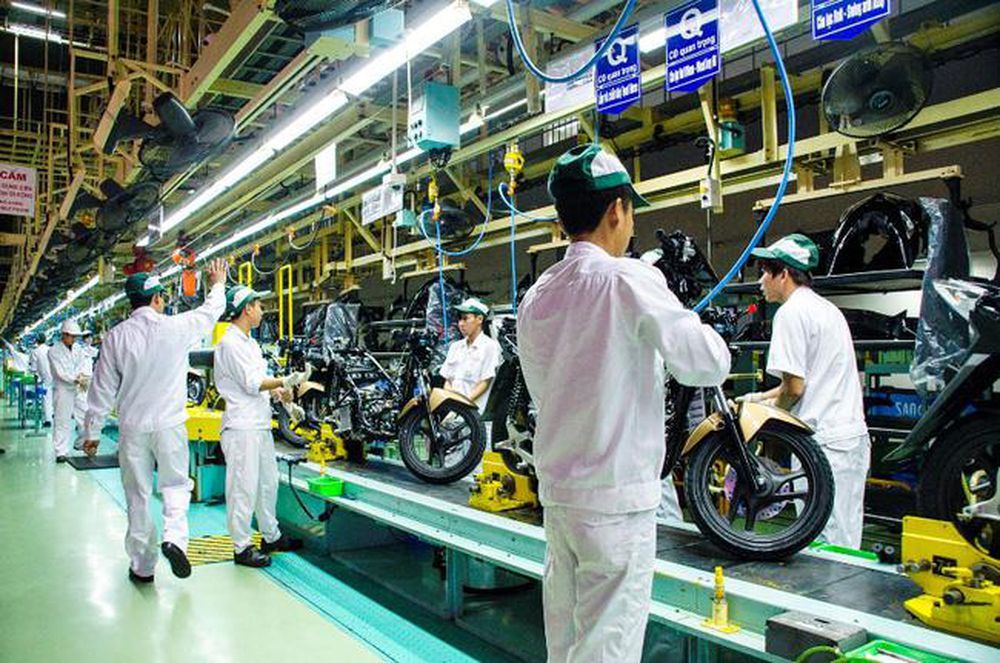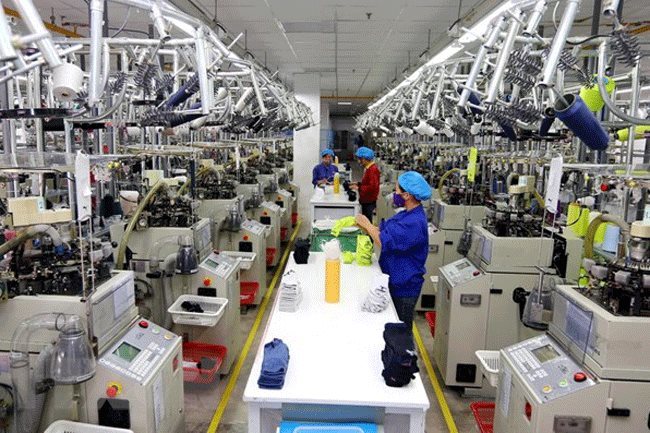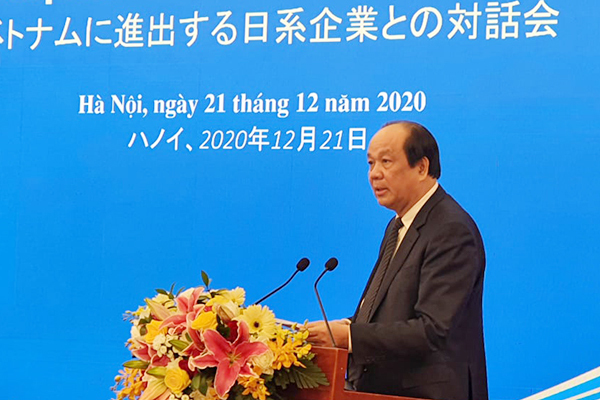- © Copyright of Vietnamnet Global.
- Tel: 024 3772 7988 Fax: (024) 37722734
- Email: evnn@vietnamnet.vn
FDI
Update news FDI
Industrial land prices escalate as more multinationals head for Vietnam
The land rent in industrial zones has seen a year-on-year increase of 20-30 percent, according to CBRE Vietnam.
Vietnamese companies thrive despite divestment of foreign shareholders
The increase in Viet Nam's stock market has helped foreign shareholders implement their disinvestment plans in Vietnamese enterprises. However, these activities will not have a significant effect on companies' internal systems.
Vietnam emerges as attractive Asian destination for investors: The Economist
Vietnam has emerged as an attractive foreign direct investment (FDI) destination in Asia, by beating China and India, a report by The Economist Intelligence Unit (EIU) has indicated.
Tax evasion questions raised as 55% of FDI enterprises report losses
Numerous FDI enterprises have reported losses over the course of several years, despite continuing to expand production and business activities, along with an annual increase in revenue, thereby causing losses and damage to the state budget.
EU investors to pour $1 billion into logistics center in Phu My
Many big investors from the EU have expressed a willingness to invest $1 billion in a logistics center in Phu My.
FDI enterprises increase but more losses reported
The number of foreign direct investment (FDI) enterprises continues to increase in Vietnam, but more are reporting losses.
High expectations laid out through fresh policy move
Three amended key laws on securities, enterprises, and investment have now come into force.
Restoring confidence after a challenging year
The confidence of European business leaders in Vietnam is returning thanks to the government’s response to COVID-19 during 2020, with the focus on embracing the opportunities in a new normal.
Power firms seek foreign funding as loans become expensive, hard to get
The quickest and most effective way to raise funding for power projects is to enter into an alliance with foreign investors, Nguyen Anh Tuan, general director of Phu Yen TTP Joint Stock Company, said.
HCM City’s EPZs, IPs attract over $747.6 million in 2020
Over $747.6 million were poured into export processing zones (EPZs) and industrial parks (IPs) in Ho Chi Minh City in 2020, representing a year-on-year increase of 15.79 percent.
Vietnam attracts over $28.5 billion of FDI in 2020
Foreign investors had poured more than $28.5 billion into the Vietnamese market as of December 20, equivalent to 75 percent of the amount in the same period last year.
Formulating strategy for new phase of German funding
The Delegation of German Industry and Commerce in Vietnam (AHK Vietnam) has over the years organised effective conferences, business forums, and networking events in collaboration with the Ministry of Planning and Investment.
Japanese maintaining operations thanks to quick-thinking action
Japanese businesses have deployed a number of new business models in Vietnam in 2020 in an effort to shelter from the storm of COVID-19.
Singapore climbs to become biggest investor in Vietnam
Singapore has risen to become the largest foreign investor in Vietnam this year, with total investment capital of US$9 billion, accounting for 31.5% of the overall.
FIEs in Vietnam: big enterprises incur big losses, electronics manufacturers thrive
The Ministry of Finance (MOF), after analyzing the 2019 finance reports of foreign invested enterprises (FIEs), has found a contrast in the business performance of the enterprises.
Half of FIEs take losses, some for years: report
The Ministry of Finance (MOF) said the 2019 finance reports of foreign invested enterprises (FIEs) showed that 45 percent of the enterprises had reported losses.
Land price soars by 600%: advantages turn into barriers to development
The sharp increase in the land price framework for the 2020-2024 period will have an adverse impact on the investment environment of many localities, experts have warned.
Focus points for reforms in hardships
As the Ministry of Planning and Investment is busy compiling the 2021 version of Resolution No.02/2020/NQ-CP – the annual document outlining orientations for improving the local investment environment
Huge power demand, energy transition strategy makes VN attractive to foreign investment in low-emission energy
Vietnam aims to be an attractive destination for investment in low-emission energy, given the country’s huge power demand for development coupled with the national strategy of sustainable energy development with the priority on renewable energy.
Vietnam is No 1 destination for Japanese investors
Of 81 businesses receiving support from the Japanese government, 37 have decided to invest in Vietnam, while 19 have chosen Thailand.





